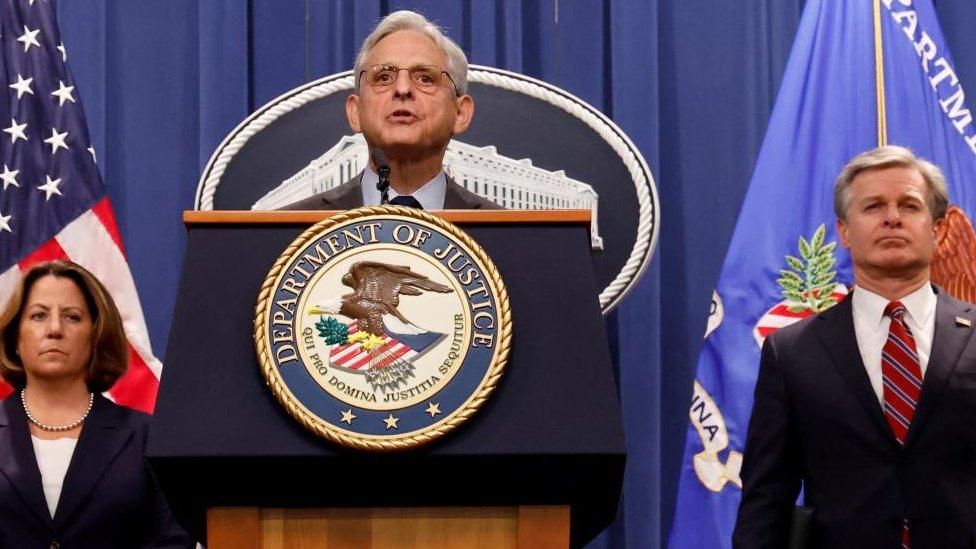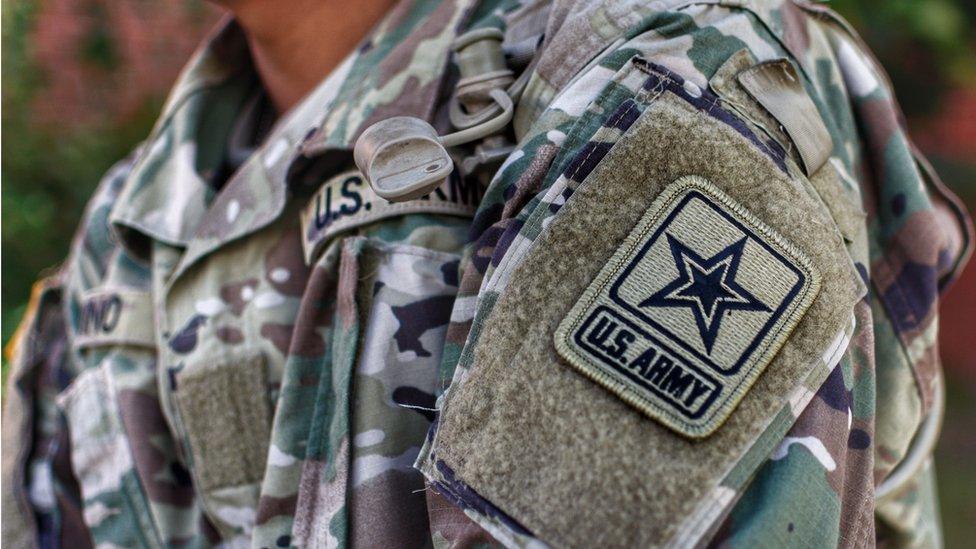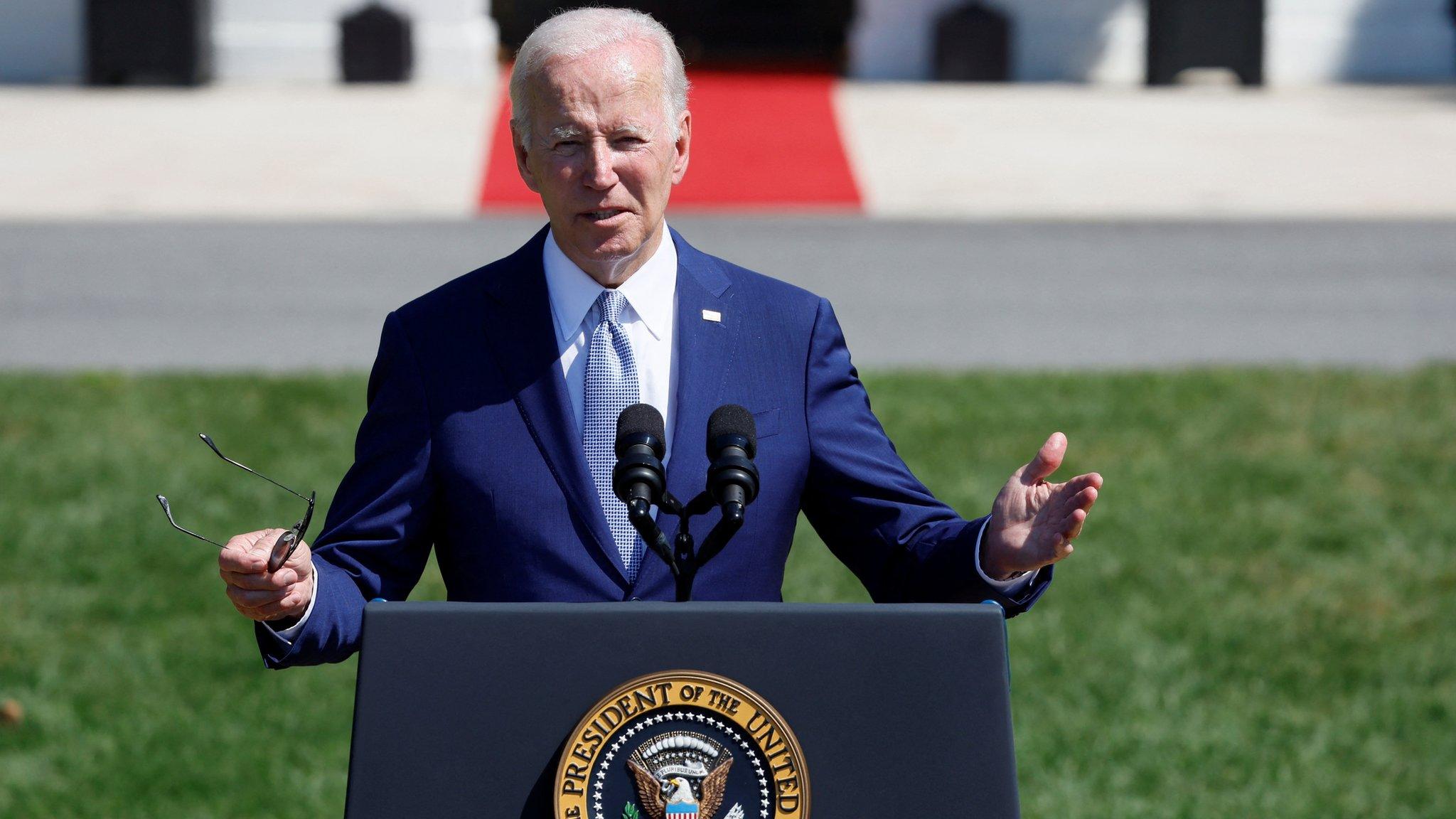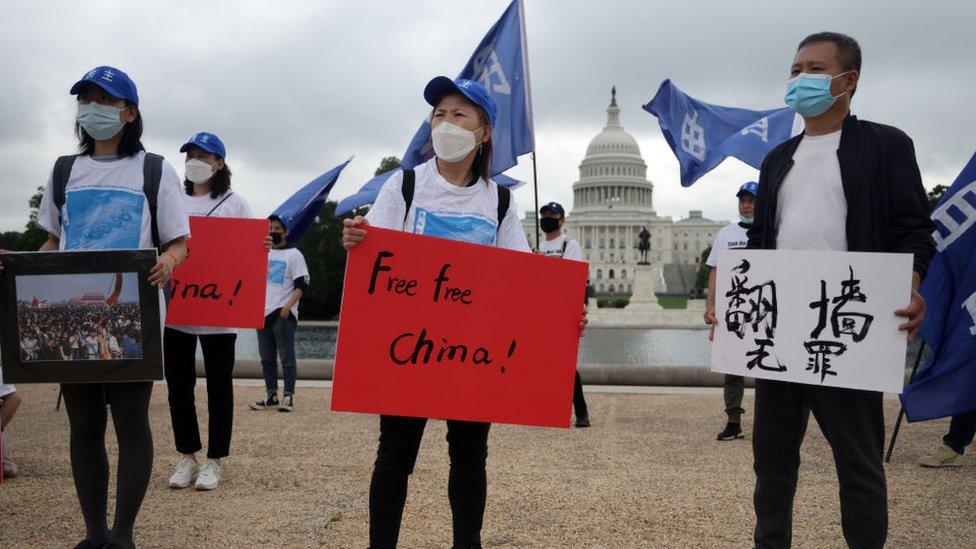US charges alleged Chinese spies in telecoms probe case
- Published

US officials have accused China of using spies to steal technology and silence dissidents.
Two Chinese nationals have been charged with paying thousands of dollars in cash and jewellery to obstruct a federal investigation into a major telecommunications company.
According to prosecutors, the two men attempted to recruit a US law enforcement official as an intelligence asset to help interfere with the probe.
The official, however, was working as a double agent for the FBI.
Beijing accused US law enforcement of fabricating lies to smear China.
Eleven other Chinese citizens were also charged in two other spying cases.
According to charging documents, the two men - identified as Gouchun He and Zheng Wang - attempted to cultivate a relationship with a US law enforcement official and sought details of the investigation, including witnesses, evidence and potential criminal charges. They also asked the official to secretly record trial strategy meetings.
While the company was not named in the documents or by Attorney General Merrick Garland at a news conference on Monday, US media has reported it to be China-headquartered tech giant Huawei, citing sources familiar with the investigation. US officials declined to identify the company.
"This was an egregious attempt by PRC (People's Republic of China) intelligence officers to shield a PRC based company from accountability and to undermine the integrity of our judicial system," Mr Garland said,
The two alleged spies paid the official tens of thousands of dollars in cash and jewellery, including $41,000 in Bitcoin for a photograph of a single page - marked "classified" - that purported to discuss a plan to charge and arrest company officials. Additional payments were made as recently as last week.
Unknown to the alleged spies, the US official was working on behalf of the FBI and passed along fake documents, Mr Garland told reporters.
In a separate case in New Jersey, four people - including three alleged intelligence operatives - were charged with using a fake think tank to recruit current and former US officials. According to Mr Garland, the suspects hoped to procure technology and have it shipped to China, as well as interfere with US protests that could be "embarrassing".
Additionally, seven Chinese nationals were charged with attempting to force a naturalised US citizen to return to China, part of what US officials described as part of a transnational effort to recover fugitives and silence dissidents and perceived opponents of the Chinese government. Two of those suspects are in custody.
According to Mr Garland, the Chinese government forced the victim's nephew to travel from China to convey threats, told him that "coming back and turning herself in is the only way out", and sent agents to the home of the victim's son.
"They made clear that their harassment would not stop until the victim returned to China," Mr Garland said.
Prosecutors had filed similar charges against alleged Chinese spies last year, accusing them of attempting to exert influence over US citizens and residents.
In late 2021 and early 2022, for example, US officials believe an affiliate of China's Ministry of State Security (MSS) hired a US-based private investigator to uncover "unflattering information" about a US congressional candidate who had participated in pro-democracy demonstrations in Hong Kong in 2015, as well as at least one state-level legislator who they believed may run for re-election.
Wang Wenbin, spokesperson for China's foreign ministry, said he wasn't aware of the specific circumstances of the cases but did say that US law enforcement "repeatedly fabricates lies to smear China, irrationally suppress Chinese business and obstruct China's efforts to chase down fugitives". He said the aim was to "turn the US into a safe haven for the corrupt and for lawbreakers".
He added: "What the US side has done stands in opposition to the issue and the rule of law, undermining the foundation of US-China law enforcement co-operation as well as damaging the US side's own image.."
Related topics
- Published29 September 2022

- Published9 August 2022

- Published9 July 2022
